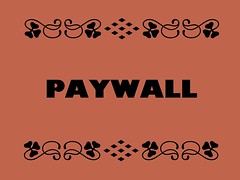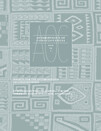 Buzzword Bingo: Paywall (Photo credit: planeta)
Buzzword Bingo: Paywall (Photo credit: planeta) anthropology-humanism (Photo credit: Wiley Asia Blog)
anthropology-humanism (Photo credit: Wiley Asia Blog) English: University of Hawaii at Manoa, Upper Campus. (Photo credit: Wikipedia)
English: University of Hawaii at Manoa, Upper Campus. (Photo credit: Wikipedia) Franz Boas established modern American anthropology as the study of the sum total of human phenomena. (Photo credit: Wikipedia)
Franz Boas established modern American anthropology as the study of the sum total of human phenomena. (Photo credit: Wikipedia) American Anthropological Association (Photo credit: Wikipedia)
American Anthropological Association (Photo credit: Wikipedia) anthropology-consciousness (Photo credit: Wiley Asia Blog)
anthropology-consciousness (Photo credit: Wiley Asia Blog) Anthropology Map (Photo credit: David Lahn)
Anthropology Map (Photo credit: David Lahn)
Over a week ago I got an email from Wiley saying that the latest number of American Anthropologist was available online. I saw immediately that this issue of the journal had an editorial from Tom Boellstorff, the outgoing editor of AA, arguing vigorously that the American Anthropological Association must move to a true ‘gold open access’ model where all of our articles are free for everyone, everywhere to read. It’s a big, huge, amazing deal that some one so experienced with our journal production, and so prominently placed within our organization, would make a statement like this.
Finally I got an email from some non-americans asking about the editorial and my reaction to it, so I decided to get down to it and get my blog on.
Except I couldn’t download it.
Alex Golub is an assistant professor of anthropology at the
University of Hawaii at Manoa.
Anthropologists are routinely exhorted to make our work accessible to non-academics, to do strident outreach, to engage with the public, and to otherwise not hole up in our academic enclaves. Part of our effort involves fielding inquiries from journalists.
If you work in an academic environment in which you must constantly prove the relevance and worthiness of anthropology, as the majority of academic anthropologists at non-elite schools do, you might give in and provide what you hope will be an innocuous blurb. Although whatever you say is invariably twisted into a shape that will support the ethnocentric, racist or sexist slant the journalist has in their piece, this doesn’t matter at all to your university or your colleagues. All they care about is the Mention (which a university staff member will collect and quantify to demonstrate your Impact Factor). Indeed, universities employ well-paid staff in development offices who work with journalists to produce quick and inoffensive media bites by calling on a stable of faculty willing to be used for just such purposes. We become media whores because donors and administrators like seeing our names in the press.
Many anthropologists who have had awful experiences with the press have been brave enough to relate them. Consider some of the revealing chapters in the edited volume When They Read What We Write: The Politics of Ethnography, edited by Caroline Brettell.
Particularly at this time in history, I would be happy to see an anthropological perspective inserted into US debates about sex, gender, women’s bodies, and gay marriage.
( :) Wouldn`t that be a refreshing change from the mindwashing campaigns of the Gay Old Party targeting pivotal demographics ! Or the spurious `liberalism` that will not accept progressives as interested equals. )
In the United States there is a general assumption that everyone should and can learn to be a fluent English speaker, no matter where they are from. But in Taiwan it is the opposite, there is an assumption that nobody who isn’t ethnically Chinese can learn to speak the language.
Not everyone responds to a foreigner in the same way, and over the years I’ve compiled a mental inventory of the various ways in which people respond to the challenge of having to talk to a foreigner. What follows is a list of seven ways strangers react when they have to talk to me.
P. Kerim Friedman is an associate professor in the Department of Ethnic Relations and Cultures at National Dong Hwa University, in Taiwan, where he teaches linguistic and visual anthropology.
 Buzzword Bingo: Paywall (Photo credit: planeta)
Buzzword Bingo: Paywall (Photo credit: planeta) anthropology-humanism (Photo credit: Wiley Asia Blog)
anthropology-humanism (Photo credit: Wiley Asia Blog) English: University of Hawaii at Manoa, Upper Campus. (Photo credit: Wikipedia)
English: University of Hawaii at Manoa, Upper Campus. (Photo credit: Wikipedia) Franz Boas established modern American anthropology as the study of the sum total of human phenomena. (Photo credit: Wikipedia)
Franz Boas established modern American anthropology as the study of the sum total of human phenomena. (Photo credit: Wikipedia) American Anthropological Association (Photo credit: Wikipedia)
American Anthropological Association (Photo credit: Wikipedia) anthropology-consciousness (Photo credit: Wiley Asia Blog)
anthropology-consciousness (Photo credit: Wiley Asia Blog) Anthropology Map (Photo credit: David Lahn)
Anthropology Map (Photo credit: David Lahn)


















No comments:
Post a Comment